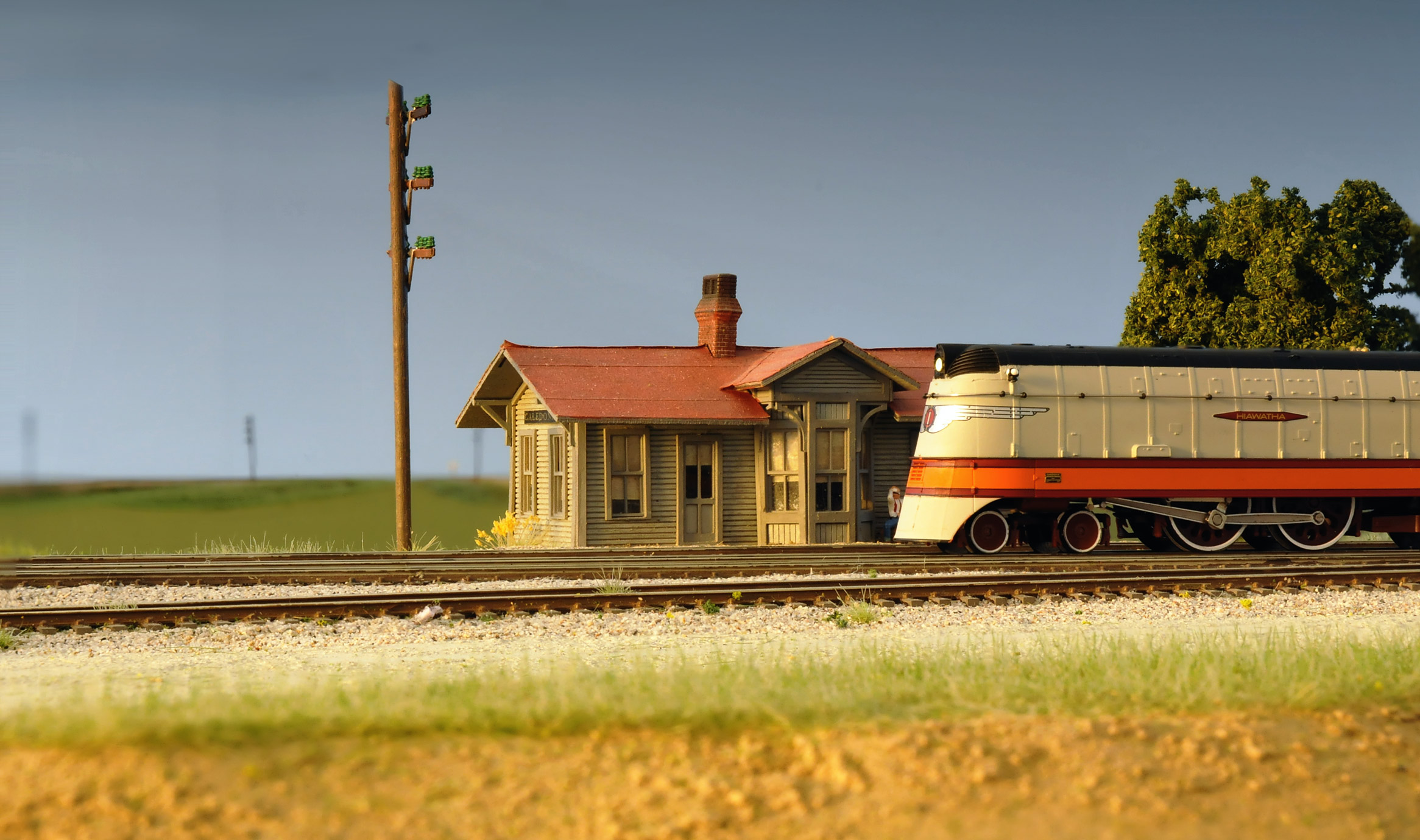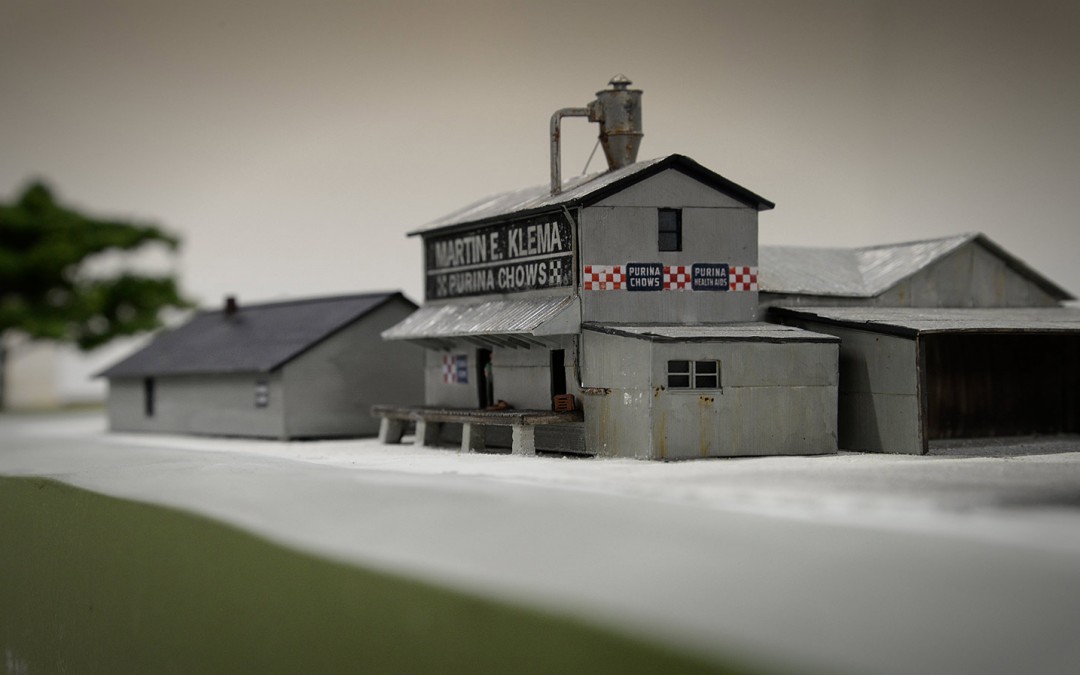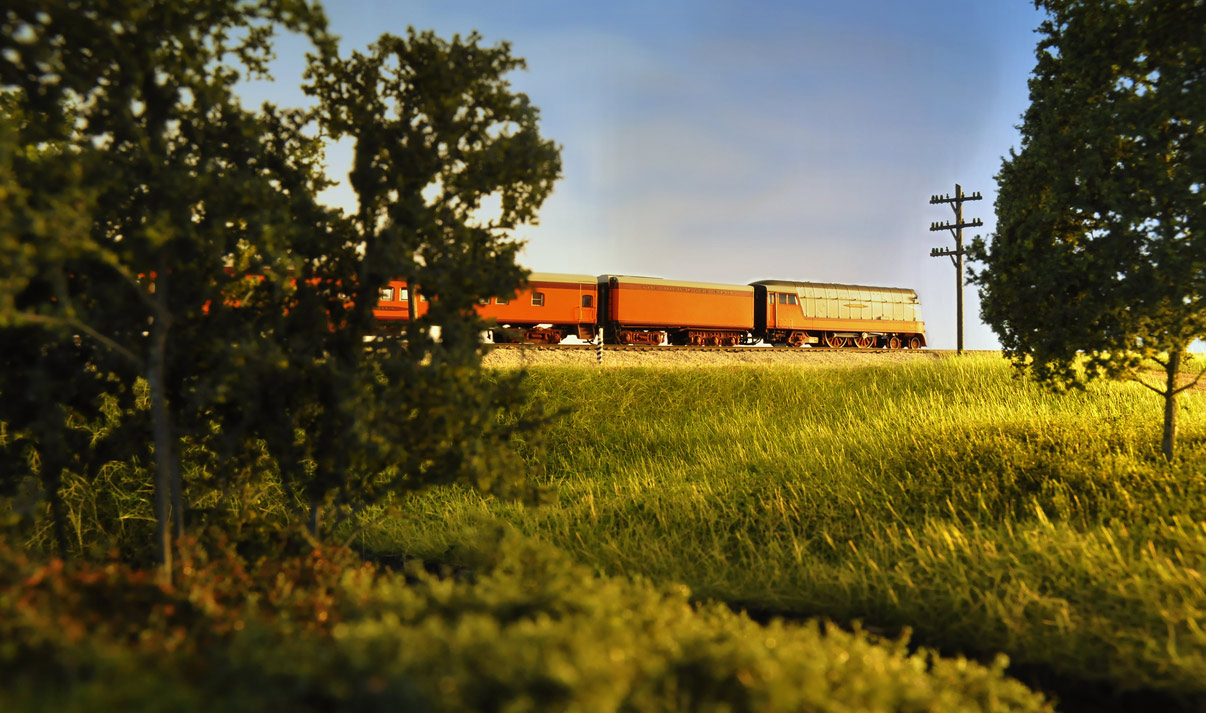
by Jamie | Sep 3, 2010 | Our Layout
Originally this plan started out as a quest for some generic scenery to provide running space between key scenes on the layout like Sturtevant, New Lisbon, Wisconsin Dells and others. We figured that typical Midwestern scenery would be easy – some taller grass, maybe some farm scenery, sprinkle in a few trees and a creek here or there and we’d be golden! Well building something generic isn’t how Modutrak group-think goes – a prototype would be a “more ideal” so says the group. So a discussion started and Keith Kohlman provided the following prototype track diagram from the 1950’s that shows the Milwaukee Road trackage from Franksville, Wisconsin to Caledonia Wisconsin: Closer inspection reveals a fair amount of interesting stuff going on here. There are two passing sidings between the two towns, a series of crossovers, some industry sidings, a couple of depots, a stream crossing or two and a few grade-level crossings. Very quickly this started to look interesting to the group and a series of old photographs came out of storage revealing more and more about the area. Here is a photo of the depot at Caledonia taken some time in the late 1950’s: Caledonia was mostly a farm and dairy community (and still is) and the depot provided a means to get milk out the larger cities, not to mention supplies that were regularly dropped off at the industry siding directly across the tracks from the depot. Plus being between Chicago and Milwaukee it was also a passenger stop between the two cities. The depot and passing siding are no longer there today. These two modules...

by Jamie | Sep 2, 2010 | Our Layout
A portion of the modutrak layout models the Milwaukee Road from Chicago, Illinois to Milwaukee, Wisconsin set in the 1950’s (give or take). Franksville, Wisconsin is 30 minutes north of the Wisconsin/Illinois border and as you can see from the 1950-era photo above, it was a booming little town with thriving railroad access. The town included the Franksville depot, two grain/feed businesses that included coal storage, a lumber yard, and two oil storage/delivery facilities. The industry siding and several of the businesses are no longer in Franksville, but the remnants are still visible making this a fun project to research and build. Here is the track plan for the two modules: Here is what an aerial view of Franksville looks like today: These two modules are still currently under construction but you can find a gallery of ongoing progress below. ...

by Jamie | Feb 19, 2010 | Our Layout
Our layout is based on individual modules that model specific scenes or areas usually based on real locations scattered around the Midwest. We are fortunate that we are all fairly like minded when it comes to modeling and have been able to agree on standards for even the smallest stuff across the modules so they have a cohesive look similar to what you would find in a large basement layout. Our group isn’t afraid to push each other a lot to try new techniques and new ideas – thus our unofficial motto/joke: “Better modeling through peer pressure”. N scale modutrak comprises a fairly large number of modules that give us the flexibility to tailor the layout to the available space we are allotted at a given show. Our largest layout so far was a 50′ x 60′ setup at the 2010 National Train Show in Milwaukee, Wisconsin. The layout used nearly every module in our group and was setup based on this diagram: Our basic straight module is five feet long and eighteen inches wide making it easier to transport in a car: We use a two-track mainline that runs on Digitrax Digital Command Control. Track spacing is 1.25″ inches. All of our track is Atlas Code 55 flex track, #7 and #10 turnouts with a few handlaid turnouts sprinkled here and there. The main wiring bus utilizes a terminal block and molex connectors at each end of the module. We do not use rail joiners or small track joints between modules – the modules are flush against each other with flex track running all the way to...





